As a sociologist, I’m fascinated by the reasons people might have to move off-grid. We moved to our off-grid home with solar power and water from a borehole a few years ago, and we meet so many people who don’t understand.
The funny thing is, even people who do live off-grid (“like us”) often don’t understand why we’re doing it. That’s because there can be so many different reasons for taking this crazy step into adventure. I will list a few in this article, but know that many of these motivations can overlap…
If you’re at the point of considering whether or not you should make your off-grid move, you might like to read some of my other posts on things to consider before moving off-grid, about things we should have done before we took the leap, and some ways to make a living when you’re living off-grid.
One thing I haven’t written about yet – because it’s such a complex subject – is the reasons people might have for living off-grid…
So Why Do People Want To Live Off-Grid?
Most off-grid adventurers have more than one reason for leaping into the unknown. It is usually a combination of some of the following…
1. The Independence Of Living Off-Grid
Imagine… living off-grid, being the only one responsible for your own comfort, and more. An off-grid home or property creates the kind of independence not many other lifestyles can; no need to rely on others for your basic necessities.
People who live off-grid because they love the idea of independence often have their own vegetable garden and maybe animals to sustain themselves. We have two separate veggie gardens, (which could keep us fed all year if I applied myself a bit more), and our chickens provide us with daily fresh eggs, as well as occasional meat (from surplus roosters).
The best thing about living off-grid as far as I’m concerned is the absence of regular bills. There’s no electricity bill, no water bills, no connections we need to pay for every month.
Granted, we do cheat a bit – we have monthly bills for phones and internet. Could we get rid of those? Of course… but we’re in a position of luxury where we don’t have to. I use the internet for my business, (read about how we have super-fast internet off-grid here) and my family can call me whenever I want.
2. The Technical Challenge of Off-Grid Homes
The technical challenges of solar power and water management are sometimes one of the main reasons for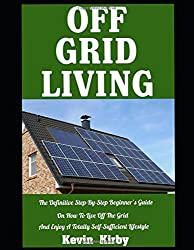 starting a new life off-grid. I know it’s the case for DIY-man!
starting a new life off-grid. I know it’s the case for DIY-man!
Before we moved here, my dear husband spent countless hours researching and calculating where and how to get systems that would work optimally in our specific situation. We’re meeting lots of others like him: a few of his closest friends are almost obsessed with anything to do with machinery and making off-grid systems more efficient.
Now we’re reasonably happy with our system (if we could do it again, of course, we would change a few things) – but he still spends a fair amount of time helping others to design their systems and finding the best ways to make things work for them.
We also decided to share what we’d learned along the way by writing a book about Getting started with off-grid solar, and you can check that out here.
3. Preparing for Disaster by Moving Off the Grid
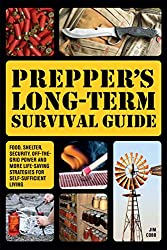 When preppers or survivalists talk about “going off-grid”, they mean it in a slightly different way. Many people are preparing for a catastrophe of some kind, that would devastate civilization as we know it. War or societal collapse, a meteor or tornado; some are more likely to happen than others, but there are so many different scenarios for this.
When preppers or survivalists talk about “going off-grid”, they mean it in a slightly different way. Many people are preparing for a catastrophe of some kind, that would devastate civilization as we know it. War or societal collapse, a meteor or tornado; some are more likely to happen than others, but there are so many different scenarios for this.
That is the idea behind some homesteads – 100% self-reliant homestead living.
How good would it be to be all ready for that – with a house that functions even when central power sources are down, and abundant water, even after the city’s water reserve has been bombarded?
4. Living Off the Grid as a Necessity
Sometimes people want to live in a beautiful spot, and the only way to do this is by living off-grid and arranging their own power and water. It often costs far more to connect to mains water or power, than it does to dig a borehole or install a solar system.
We have several friends like this – and although I understand their situation (they’re not into the whole technical challenge of off-grid systems and couldn’t care less about preparing for a disaster or not getting monthly bills) – they are often the ones who understand our reasons the least.
As far as they’re concerned, only crazy people would choose to go off-grid, when it’s perfectly possible to connect to the power grid or mains water! They might be right – but I’d rather be crazy than lose our little off-grid island 😉
5. Going Off-Grid – And Dropping Out
Ever wanted to disappear from civilization? The internet is full of articles on how to do that. It’s not a new thing either; people would be dropping “off the grid” before there even was a grid to drop out from!
Some articles I’ve read about dropping out are clearly aimed at dodgy types – like “Josh” in this article, who had so much credit card debt he decided to disappear rather than paying it off.
Dropping off the grid is not just for criminals and religious extremists, the most amazing example of this that comes to mind is the story of the doctor who was declared dead in Spain but turned up 19 years later… living off-grid in Italy.
The story of “Steve” and “Dorothy” is fascinating as well – their main goal in life is to get as far away from society as they can.
6. Going Off-Grid – and Back to Basics
We’re sometimes told we don’t “really” live off-grid, as we still have electricity and water. Pardon me?
Some people believe that “living off-grid” means you’re not supposed to have any connection whatsoever. No elaborate solar system to provide for all your electricity needs (which also means no phone or internet), no running water, nothing. For instance, it’s the story of “Dorothy”…
Although I do understand the idea behind this (it’s like camping for life), this is not for us. And if you’re contemplating a move off-grid and think it’s the only possible way… know that that’s not the case! It’s just one of the many misconceptions about living off-grid.
7. Going Off-Grid – For A Greener And More Simple Life
Let’s not forget this option – many people just want to live off-grid to get closer to nature. They also want to lower their carbon footprint and minimalize their impact on the environment.
I’m not sure “going green” is a good enough argument to go off-grid. Building a new house in the middle of nature has a significant impact on the local environment – especially if roads are going to be laid (or used more often) so the inhabitants can move around.
However, it is true that the environmental footprint is often smaller for people living off-grid. We’ll produce less waste (probably because it’s such a hassle to do something with said waste!), consume less energy (even though it’s renewable), and are often much more conscious of our environment than the average person elsewhere.
There’s also the big attraction of the simple living movement. Doing more things yourself, cooking from scratch, growing your own food – the more technology is at our disposal, the more attractive a less “noisy” life starts to look!
Other Perks Of Living Off-Grid
There are a few unexpected by-products of living off-grid though. They are often not the main reason why people will start the great off-grid adventure, but they help!
It’s So Quiet And Peaceful Out Here.
Even though we’re not that far from “civilization” (only 5 minutes by car to the next village), we have stunning night skies, and often the only things you hear are crickets, bees, or birds – depending on the season, and the time of the day.
Living Off-Grid Can Boost Your Confidence
From being a little city girl, I now own and manage an off-grid olive and almond farm, with alpacas and a guest house.
When there’s a problem with heating or electricity, I (kind of) know what buttons to push, how to turn on the generator, or change gas bottles. I’ve chased away wild boar and stood guard against foxes.
I’m doing things I couldn’t imagine doing just a few years ago… Really, that confidence boost is worth a lot.
Off-Grid Living Reconnects Our Bodies With Nature
I’m not a very woo-woo kind of girl, but it astonishes me how much healthier our life out here is. Yes, yes, there’s still coffee and alcohol and cigarettes if you bother to go to the shop for them – but at the same time, there’s food from the garden or from local friends.
But more importantly, living off-grid makes our bodies and minds respond in a more natural way. We get tired when it gets dark, and we wake up not long before sunrise. We get to take a break if or when we feel like it, and our bodies reward us with superior health.
Are we becoming supermen? Of course not – as I’m typing this, DIY-man is in bed with the flu. He got it from the friend who picked olives with him, and I might be next…
The Off-Grid Community
The most unexpected aspect of living off-grid is the close connections we make with other people living in the same or similar situations. Other off-grid adventurers are becoming like family – we always know who to call when we’re in trouble or in need of a chat.
Like-minded souls can even be found (in numbers) online – where Facebook groups are a great way of communicating and forming a community with one thing in common – we’re all nutters on our big off-grid adventure 🙂
Do you live off-grid, or are you planning to make the move sometime (soon)? Which of the reasons I listed applies best to your situation?

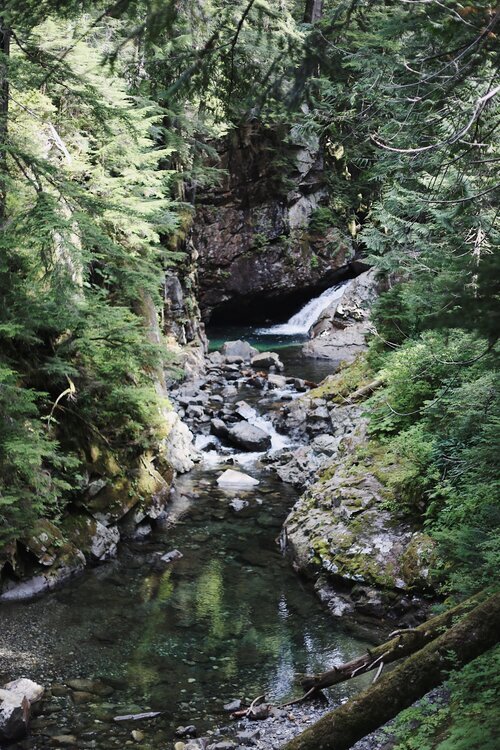
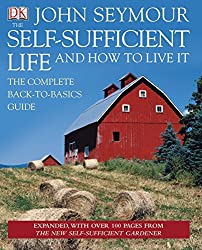
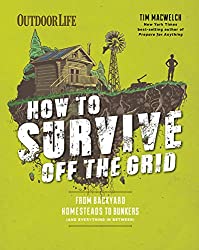
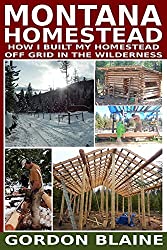
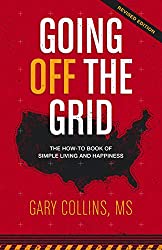
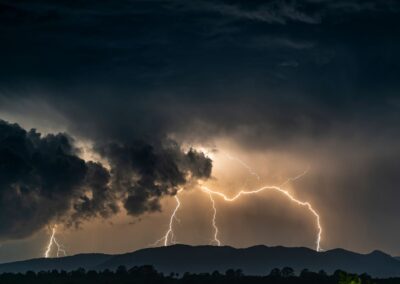
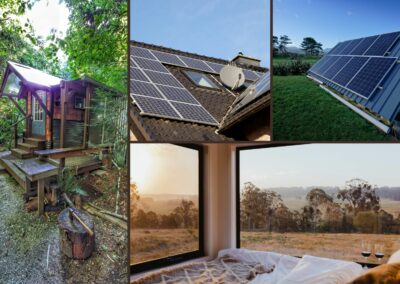


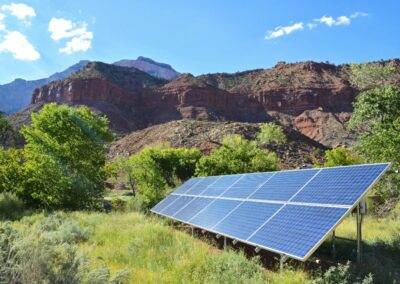
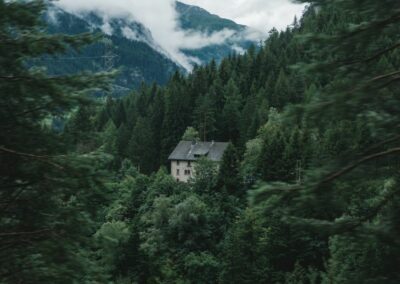


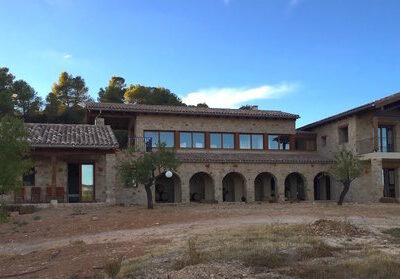

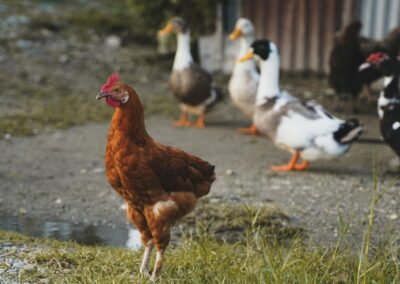
0 Comments